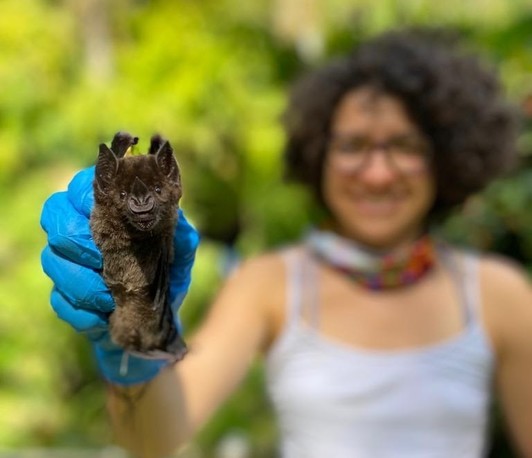Understanding the foraging behaviour of Phyllostomus hastatus: Over time shared foraging hotspots without coordinated foraging
Rado Seminar by Camila Calderon
- Date: Mar 24, 2023
- Time: 10:30 AM - 11:30 AM (Local Time Germany)
- Speaker: Camila Calderon
- Location: Hybrid meeting
- Room: Seminar room MPI-AB Möggingen + Online
- Host: Max Planck Institute of Animal Behavior

How animals find unpredictable resources and avoid competition is an ongoing topic in ecology. Greater spear-nosed bats (Phyllostomus hastatus) are facultative social foragers that live in stable groups of genetically unrelated, but highly cooperative females. Female Phyllostomus often forage together, actively recruiting group-mates to temporally unpredictable food sources like flowering trees and, it has been reported, jointly defending these valuable resources. Because they are a widely distributed species that experiences significant fluctuation in resource distribution and availability throughout the annual cycle and across their range, P. hastatus has great potential for testing variation in social coordination. We used GPS-tracking from individual bats, to understand if females and males of P. hastatus coordinate foraging movements and how they use foraging patches during different years, within and between three different caves in Bocas del Toro, Panama.